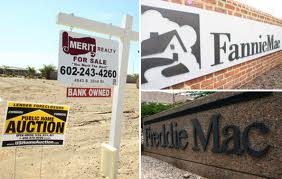
Homebuyer Education Program in New York Provides a Model of Success
Since President Obama's re-election, some pundits have begun calling for sweeping federal housing policy changes, including scrapping Fannie Mae and Freddie Mac and downsizing the Federal Housing Administration's role in providing low-income mortgages. Government officials are already considering a proposal to require homebuyers to make a minimum 20% down payment to receive a qualified residential mortgage, which would severely limit lending to low-and moderate-income families. These policy changes are untested and could disrupt the recovery in the housing market, which produces $2 trillion in annual mortgage originations. Rather than make wholesale policy changes, the public and private sectors should come together to find creative ways to mitigate mortgage risks while promoting sustainable growth. One example they could draw from is a homebuyer education program that has already demonstrated success in New York. The New York Mortgage Coalition, an umbrella organization for 12 home counseling agencies, requires prospective first-time homeowners to go through an 8- to 12-hour financial education program—essentially a boot camp that teaches people the unvarnished facts about owning a home. Those who complete the program are fully aware of how the American dream can easily become a nightmare unless a disciplined sequence of financial steps are followed before closing on their homes. Does it work? Program graduates' documented foreclosure rate is less than 2% on mortgages originated from 2000 to 2007 for low- to moderate-income families making an average down payment of only 3%. This model could be replicated across the country by nonprofit counseling agencies certified by the federal Department of Housing and Urban Development. The workshops could be conducted online or in-person. Because many HUD-approved counseling agencies already provide similar services, the capital resources, personnel and business processes are essentially already in place. Requiring such pre-purchase education would not only be less onerous than requiring a 20% down payment, it would also remove a choke point to growth of the housing market. Granted, this strategy is not a silver bullet; poor decisions and factors outside of buyers' control will never be completely eliminated. But by combining this approach with other community-based programs aimed at improving financial planning, great progress can be made in creating a more sustainable and self-sufficient housing market. The challenge is building awareness and getting buy-in from government and industry leaders. That will not be easy with so many stakeholders vying to sway policy makers toward their own goals. Some of the proposed changes could cut off the promise of home ownership to millions of Americans; a better path would be to leverage proven strategies, such as the homebuyer education program in New York, to improve existing national mortgage lending policies. Ken Inadomi is executive director of The New York Mortgage Coalition, a nonprofit collaboration of banks and community-based housing agencies helping low- and moderate-income New York families become first-time homeowners and avoid foreclosure through financial workshops and one-to-one counseling.


